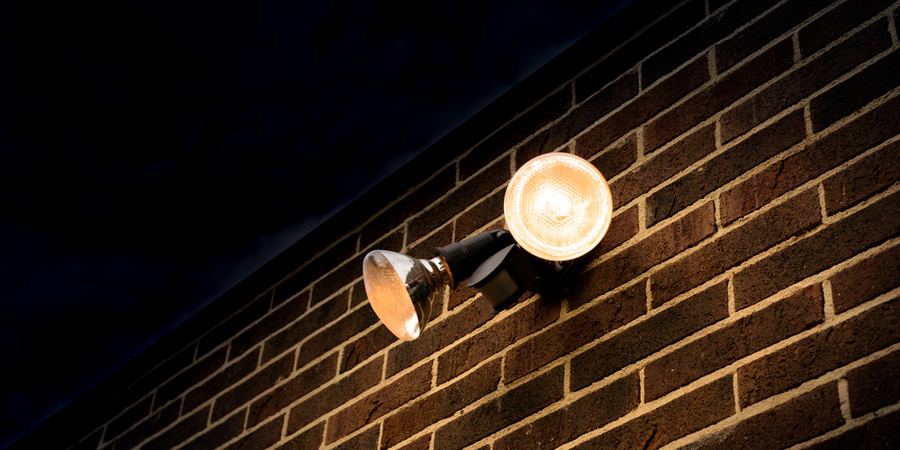Lighting for Internet CCTV Cameras
Wireless internet CCTV cameras, also known as wireless IP cameras, are the digital replacement for traditional analogue CCTV. Unlike their obsolete analogue cousins, most modern wireless internet CCTV cameras have a reasonable capability to produce images at relatively low light levels, but adding some illumination will make the image from indoor cameras crisper and clearer. This article will show you some of the options.
If you have installed an indoor wireless internet CCTV camera or IP camera in your home or office in San Francisco, CA for the first time, you may notice that at night the image becomes dark, fuzzy and blurred. The camera will try its best in these circumstances to compensate for the low light levels, but there will be a limit to what it can do. Assuming the camera does not have infra-red lighting built in, it will simply not be able to produce images at all in a totally dark room. Let’s look at some of the possible solutions to this problem:
The first option is to choose a camera with built-in infra-red or IR lamps. Such cameras often have the ability to switch automatically between normal and infra-red viewing as the ambient light deteriorates when it gets dark. This enables the camera to send good quality images at very low light levels, although they will be in black and white when the infra-red lighting is being used, which is a side-effect of this type of light. Unfortunately, built-in infra-red lighting can add quite significantly to the cost of the camera so we’re going to have a look at the other options in the next sections.
As already mentioned, infra-red lighting produces black and white images, so if you want crisp, full color images after dark the best way to achieve this is to add some conventional lighting to the scene. A cheap and effective solution is to have a table lamp or two dotted around the room. These can be fitted with timers so that they come on only during the night, and using low-energy bulbs makes them very inexpensive to leave on. You will have full color images all night and even if you need to buy several lights it will likely be far less expensive than a camera with infra-red capability. The only thing to watch out for is where to place the lights. They should enhance the scene without dazzling the camera, so if at all possible the lights should be out of shot. If this is not possible, lampshades will help to diffuse the light. A certain amount of experimentation may be required to get the best results.
One of the real benefits of wireless internet CCTV cameras is their capability to communicate intelligently across the internet. This capability can be put to good use when it comes to lighting. You can obtain a very inexpensive kit from a specialist supplier in San Francisco, CA that will enable the camera, unbelievably, to switch the lights on and off, which avoids them being on all night. You can get this set up so that motion detection can cause the camera to switch the lights on and it will then get a better look at any intruders! Of course, a major drawback of this approach is that the camera may not detect movement in the first place if the scene is too dark. Instead of controlling the light switching by motion detection, you can choose to switch the lights on and off manually. You can simply click a button on your camera’s web page or, amazingly, even send an SMS text message from your mobile phone to switch the lights on and off in your home, even from the other side of the world! These possibilities have only become a reality thanks to the communication skills of internet CCTV cameras, a far cry from the old analogue CCTV systems.

